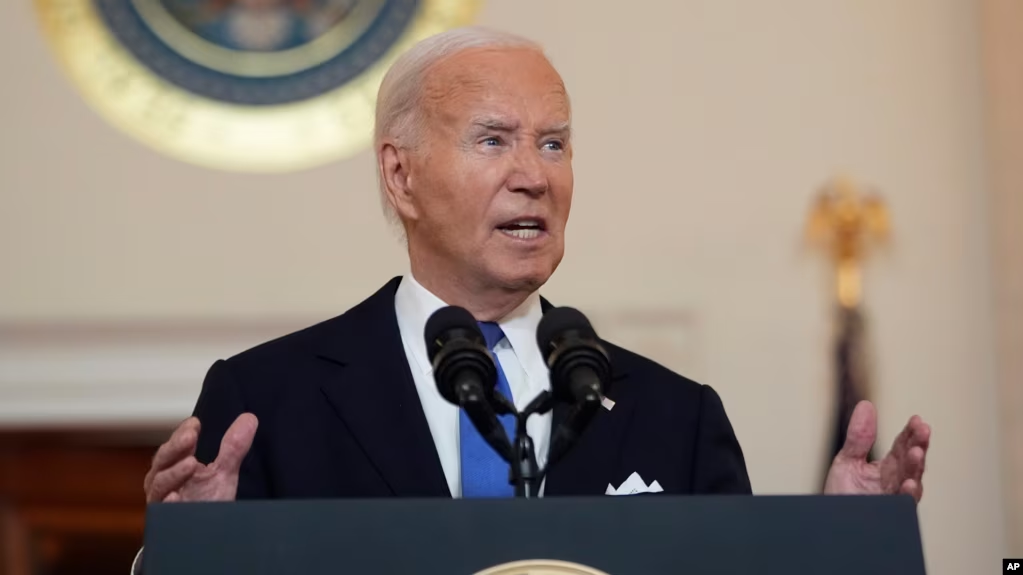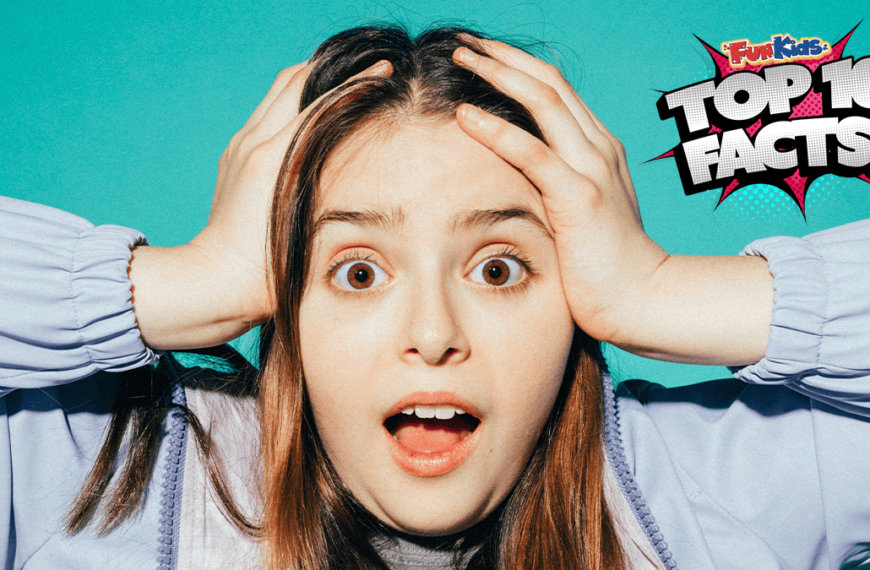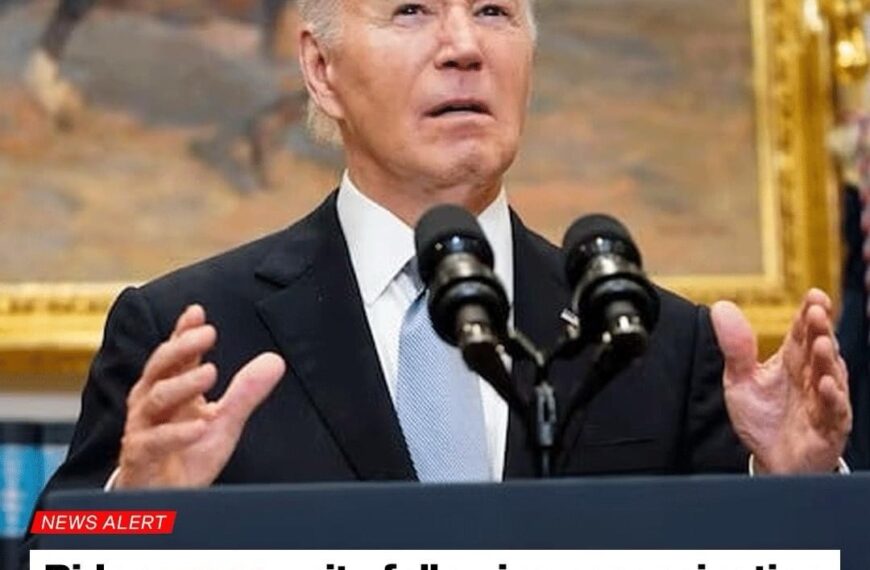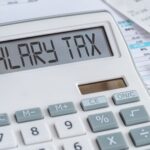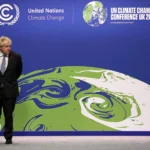President Joe Biden speaks in the Cross Hall of the White House, July 1, 2024, in Washington.Share
U.S. President Joe Biden criticized a Supreme Court ruling Monday that granted presidents broad immunity from prosecution for official acts conducted while in office, in a case involving former President Donald Trump’s efforts to overturn the results of the 2020 election.
“No one is above the law, not even the president of the United States,” Biden said during an address from the White House Monday evening.
Biden vowed to continue to respect the limits of presidential power but warned that future presidents may not.
“Any president, including Donald Trump, will now be free to ignore the law,” Biden said.
Watch related video by Dora Mekouar:
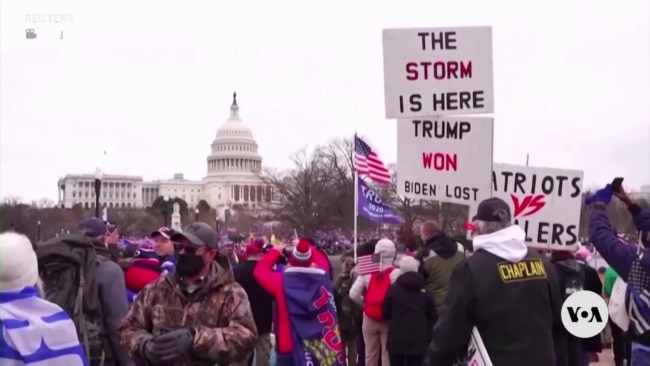
EMBED SHARE
How US Supreme Court’s immunity decision could impact presidential race
The president said Monday’s ruling was the latest in “a series of attacks in recent years on a wide range of long-established legal principles in our nation” by the court, citing rulings against abortion rights and civil rights-era voting laws among decisions that “undermine the rule of law in this nation.”
The Supreme Court said that while Trump had immunity for official acts while in office, there was no immunity for unofficial acts. The top U.S. court left it up to lower courts to decide under which instances Trump could be prosecuted.
The 6-3 ruling, on the last day of the court’s current term, all but guarantees that Trump will not be tried in the case before the November 5 election in which he is the presumptive Republican presidential nominee to face Biden in a 2020 rematch.
Trump has denied any wrongdoing linked to the outcome of the 2020 election but has long falsely claimed that voting and vote-counting irregularities cost him another four-year term in the White House.
If he loses the November election, he could soon afterward face trial in the case linked to the 2020 election, but if he wins, he could direct his attorney general, the country’s top prosecutor, to drop the case.
6-3 ruling
The court’s decision broke down along ideological lines, with the court’s six conservatives in the majority and its three-member liberal minority dissenting.
Writing for the majority, Chief Justice John Roberts said Trump “may not be prosecuted for exercising his core constitutional powers, and he is entitled, at a minimum, to a presumptive immunity from prosecution for all his official acts.”
But Roberts said, “The President enjoys no immunity for unofficial acts, and not everything the President does is official. The President is not above the law.”
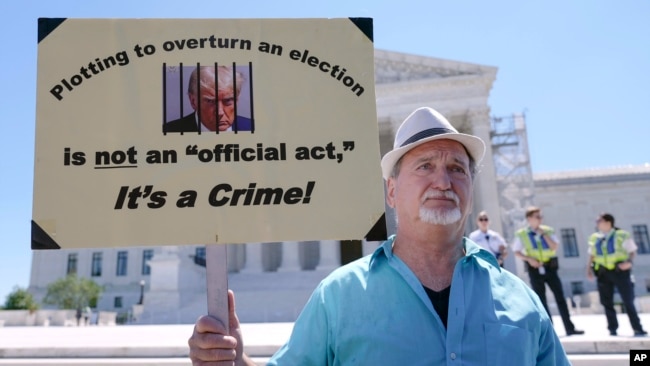
The court’s dissenting judges vehemently opposed the decision, with Justice Sonia Sotomayor writing that it “makes a mockery of the principle, foundational to our Constitution and system of Government, that no man is above the law.”
The majority ruling threw out part of prosecutor Jack Smith’s case against Trump — the former president’s alleged efforts to use the Justice Department to buttress his claims of election fraud and submit slates of fake Trump electors in states that Biden won.
“The President may discuss potential investigations and prosecutions with his Attorney General and other Justice Department officials to carry out his constitutional duty,” Roberts wrote. “Trump is therefore absolutely immune from prosecution for the alleged conduct involving his discussions with Justice Department officials.”
The court instructed the federal trial judge, Tanya Chutkan in Washington, to review Trump’s indictment before any trial can occur for charges that must be dismissed because they are based on his official acts, while leaving stand unofficial acts that could serve as a basis for a prosecution of Trump. The court said Chutkan “may not inquire into the President’s motives.”
Trump celebrates
Trump was elated with the ruling, saying on his Truth Social platform, “Big win for our Constitution and democracy. Proud to be an American.”
The high court ruling was the first time the court had ever decided whether a former president could be prosecuted in a criminal case for actions he took while in office, or whether he has immunity from being charged.
A bedrock of U.S. jurisprudence holds that no one is above the law, that everyone has the same freedoms but also that everyone is subject to prosecution for breaking laws.
Trump made a sweeping claim of executive immunity, saying that in trying to upend his election loss four years ago, he was acting officially as president in trying to uphold the integrity of the outcome, insisting that he lost only because of fraud and election irregularities.
Trump lost five dozen court cases claiming he was cheated out of reelection to a second four-year term, and to this day frequently makes the same false claim, only occasionally saying he lost reelection to Biden.
Smith, a Justice Department special counsel, accused Trump in a four-count indictment filed in Washington almost a year ago of plotting to overturn the 2020 election result, engaging in a conspiracy to upend his loss to stay in power.
Smith accused Trump of seeking to get Justice Department officials to help validate his claims that widespread fraud had kept him from winning reelection. The indictment alleged that he and key aides pressured state lawmakers to draft false slates of electors saying that he had won states where vote counts favored Biden.
The indictment laid out how Trump pressured then-Vice President Mike Pence to block or delay certification of Biden’s victory as Congress considered the final vote count at the U.S. Capitol on January 6, 2021.
In the U.S., the outcome of presidential elections is not determined by the popular vote but by a vote in the Electoral College. The national election is, in effect, a state-by-state vote in each of the 50 states, with the most populous states holding the most votes in the Electoral College.
Other court decisions have ruled that presidents have limited immunity from civil lawsuits contesting the actions they have taken. But Monday’s case was the first time the court ruled on presidential immunity as it pertained to alleged criminal actions by a president.

